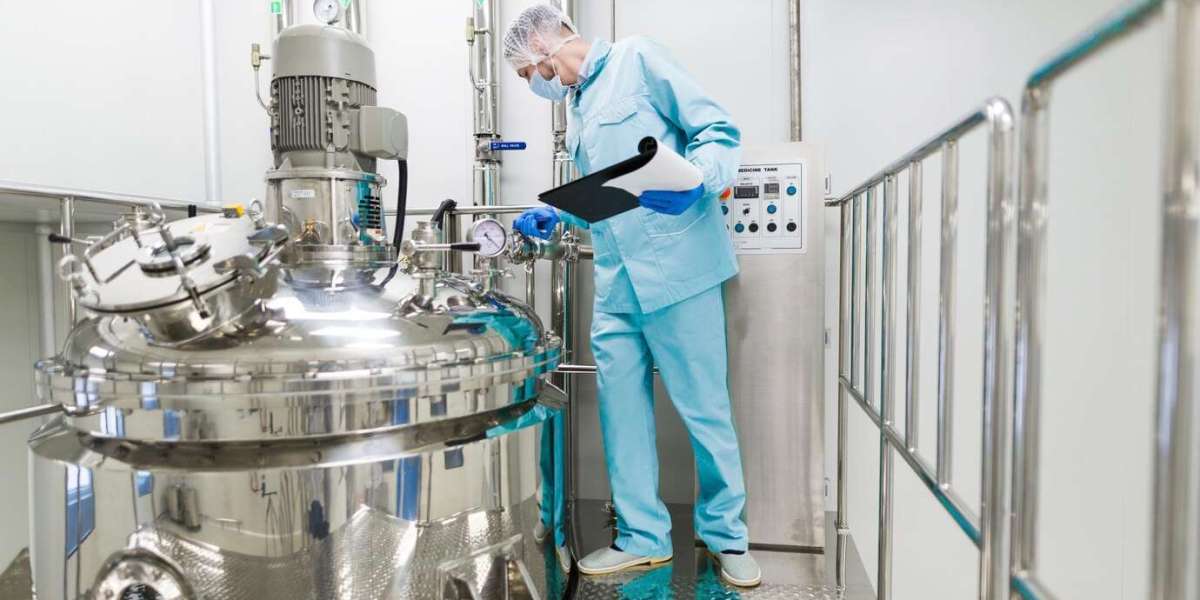A fermenter is a crucial piece of equipment used in the fermentation process, enabling the controlled growth of microorganisms such as yeast, bacteria, and fungi. Whether in brewing, food production, biotechnology, or pharmaceuticals, a fermenter provides the ideal environment for microbial activity, ensuring the production of high-quality fermented products.
Types of Fermenters
There are several types of fermenters, each designed for specific applications. The choice of a fermenter depends on factors like the type of microorganism, oxygen requirements, and production scale.
1. Batch Fermenter
A batch fermenter is a closed system where all ingredients are added at the start, and no further inputs are made during the process. This type is commonly used in beer brewing, yogurt production, and enzyme manufacturing.
2. Continuous Fermenter
A continuous fermenter allows fresh nutrients to be added while the final product is removed simultaneously. This type is ideal for large-scale industrial applications such as ethanol production and probiotic fermentation.
3. Aerobic Fermenter
An aerobic fermenter is designed for fermentation that requires oxygen. These fermenters have aeration systems to supply oxygen, making them suitable for vinegar production, pharmaceutical fermentation, and enzyme synthesis.
4. Anaerobic Fermenter
An anaerobic fermenter operates without oxygen, making it ideal for winemaking, beer brewing, and biogas production. The sealed design ensures a pure fermentation process with minimal risk of contamination.
5. Conical Fermenter
A conical fermenter has a cone-shaped bottom that allows yeast and sediment to settle, making it easy to remove unwanted particles. This type is widely used in breweries and wineries for improved clarity and efficiency.
Key Features of a Fermenter
A high-quality fermenter should include the following essential features to ensure efficiency and hygiene:
Material Durability: Stainless steel fermenters are preferred for their resistance to corrosion and ease of cleaning, while plastic fermenters are cost-effective and lightweight.
Temperature Control: Maintaining an optimal temperature is critical for microbial activity. Advanced fermenters come with heating or cooling systems for precise control.
Ventilation and Airlocks: A good fermenter should allow gases like carbon dioxide to escape while preventing contamination.
Easy Cleaning and Maintenance: A well-designed fermenter should have a smooth interior and removable parts for hassle-free cleaning.
Applications of Fermenters
1. Brewing and Alcohol Production
A fermenter is essential in beer, wine, and spirit production, where yeast converts sugars into alcohol and carbon dioxide, contributing to the unique flavors of each beverage.
2. Dairy and Food Industry
Fermenters play a key role in producing yogurt, cheese, and other fermented foods by creating the right conditions for beneficial bacteria to thrive.
3. Biotechnology and Pharmaceuticals
Industrial fermenters are used to produce antibiotics, vaccines, biofuels, and enzymes, ensuring controlled microbial growth for large-scale production.
Conclusion
A fermenter is an indispensable tool in fermentation-based industries, offering controlled conditions for microbial processes. Whether for homebrewing, food processing, or large-scale industrial use, selecting the right fermenter enhances product quality and efficiency. Proper maintenance and operation of a fermenter can significantly improve fermentation outcomes, making it a vital component of any production process.








